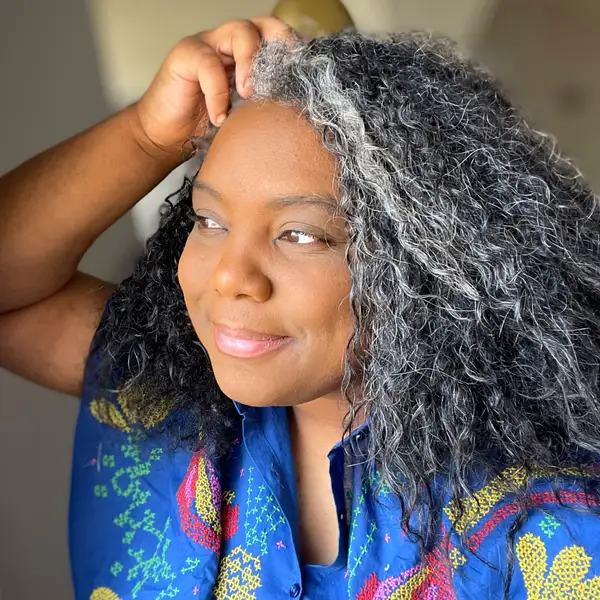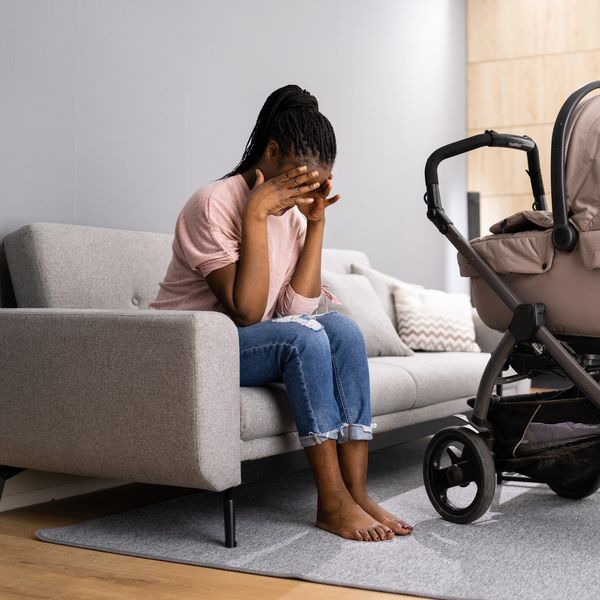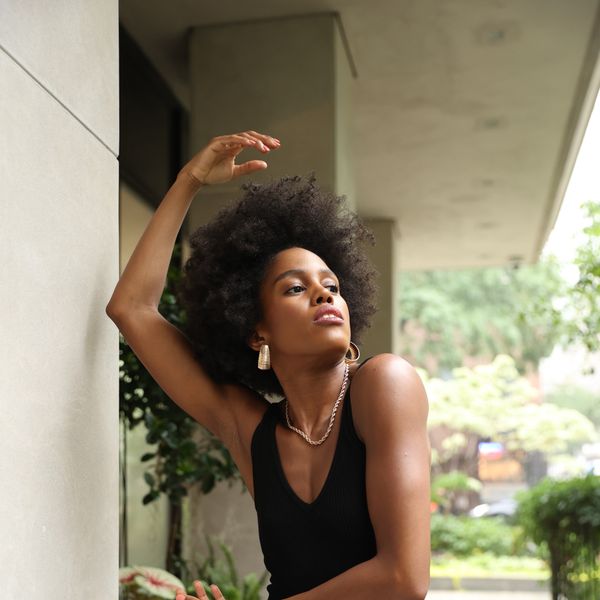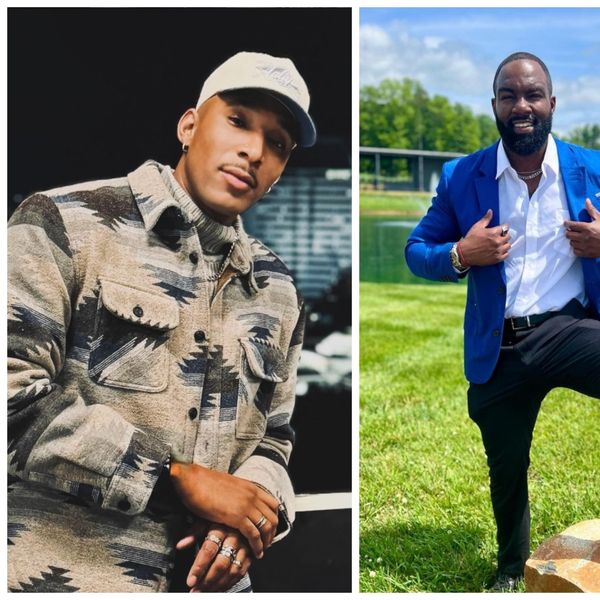If you're on Instagram, you have likely come across words written by Morgan Harper Nichols and, if you have, chances are you were both moved and inspired by her words. If you haven't come across her beautiful words, trust me when I tell you that you are missing out on some gems. Artist, poet, and musician Morgan Harper Nichols has managed to cultivate a massive following on Instagram (1.7 million and counting to be exact) with her magical, soulful words. Words that seem to hit you right in the gut because it's just what you needed to hear.
I'm one of those 1.7 million followers and the one word that comes to mind whenever I see a post from Morgan is vulnerability. The kind of vulnerability that makes you want to share too. In fact, in 2017, Morgan started a project where she invited people to share their stories with her via her website. And guess what? People shared. Morgan was able to take those stories from readers all over the world and create art with her responses to the stories she received. Of course, all stories and names are kept private but the art she has been able to create from those stories is shared all over social media daily.

Morgan's supporters are not the only ones that share personal stories though. Earlier this year, Morgan shared something very personal with her followers and blog subscribers. She shared that she was officially diagnosed with autism. The average age of an autism diagnosis is around three years old, so receiving a diagnosis as an adult is not as common and more difficult as there is no established procedure for diagnosing autism in adults. On her journey to diagnosis, Morgan found just how difficult it would prove to be. She shared that she actually asked her doctor for a referral years ago after suspecting that she might be on the spectrum. Her concerns were dismissed and she was told that she had nothing to worry about. She took his word but only for a moment.
Last year, Morgan got the courage to reach out again for help and today she is so grateful that she did.
Morgan on what led her to believe she needed help:
"There were a few things, but primarily I was struggling with a lot of social and communication issues. Especially in high school and college but I just thought that I was awkward. I would miss out on social cues and even basic things like email etiquette were a struggle for me. I just kind of put it on myself and thought that I needed to grow up and stop being so awkward. But by the time I was in my late twenties and grown, I realized I was still struggling with these issues and I felt like there was just something there and I didn't know what it was.
"My parents had actually talked about autism before but it is not a diagnosis that you even considered for a lot of girls, especially back in the 90s. And more so for girls of color. And black girls, it's almost impossible. I felt tired and exhausted all of the time. Now I know that I have a lot of sensory processing issues. I didn't realize that things like loud music or bright lights wear on me throughout the day. I just thought that I was just extra tired. So, that's what led me to seek help the first time."
"By the time I was in my late twenties and grown, I realized I was still struggling with these issues and I felt like there was just something there and I didn't know what it was. My parents had actually talked about autism before but it is not a diagnosis that you even considered for a lot of girls, especially back in the 90s. And more so for girls of color. And black girls, it's almost impossible."
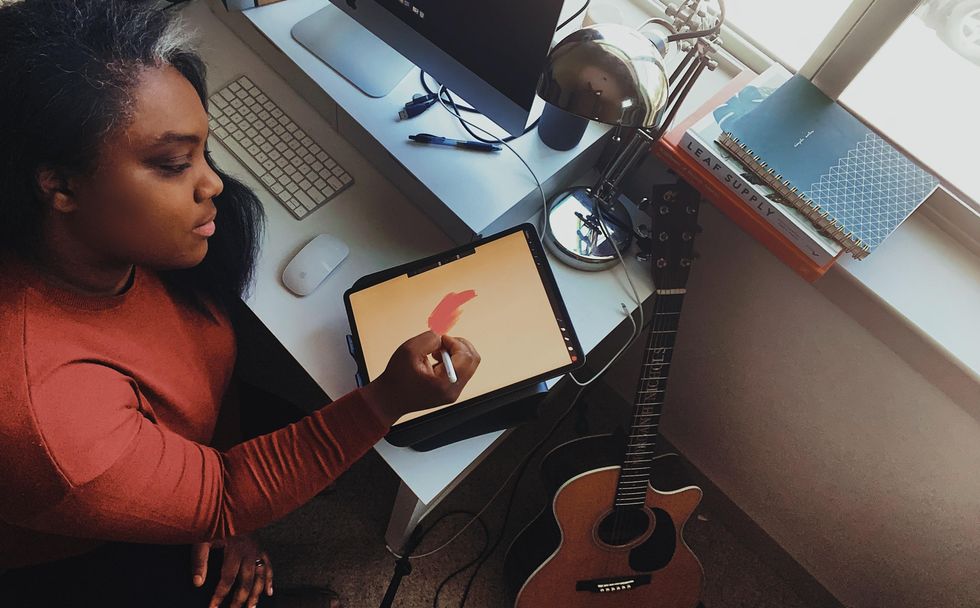
Courtesy of Morgan Harper Nichols
On why seeking a diagnosis was the right thing for her and her quality of life:
"I had also dealt with pretty severe depression as a teenager. I think other people who have dealt with depression can relate to this but you just kind of know when you're headed in a direction you don't want to go back in. When I was a teenager, everything was so stressful. I mean, everything from trying to make friends to trying to keep up with school. I was just so overwhelmed and that drove me to depression. I think that was a part of it too, recognizing that it was something there and not wanting to go back to that place and wanting to get help."
Morgan on what has changed since receiving her autism diagnosis:
"One of the first things that the specialist said to me right after giving me the whole rundown of the diagnosis was, 'And it's not your fault.' I cried decades of tears in that moment. It was just such a healing moment for me because I had been putting so much responsibility on myself, especially after having had a medical professional look at me and say I was fine and had nothing to worry about. Having that said to me, I felt it was my fault and that I had to fix it. So having another professional who knows this diagnosis backward and forward tell me that it wasn't my fault just changed a lot for me.
"Since then, I've made some adjustments in my day-to-day life. I realized I was putting so much responsibility on myself, even with work and not asking for help. I kept thinking that I could do it. I've gotten help with things like managing emails. It's hard though because there's a part of me that feels like I should be able to do these things on my own. There's a lot of stigma around asking for help and unfortunately, we live in a society where people don't feel like they can ask for help, even more so black women. I feel like now I finally have the language to work through that and say, 'OK Morgan, I know you feel like you should be able to do this by yourself but there are legitimate reasons why you can't.' I've got to seek help and that's new for me because I do try to take all that on my own."
"I cried decades of tears in that moment. It was just such a healing moment for me because I had been putting so much responsibility on myself, especially after having had a medical professional look at me and say I was fine and had nothing to worry about. Having another professional who knows this diagnosis backward and forward tell me that it wasn't my fault just changed a lot for me."
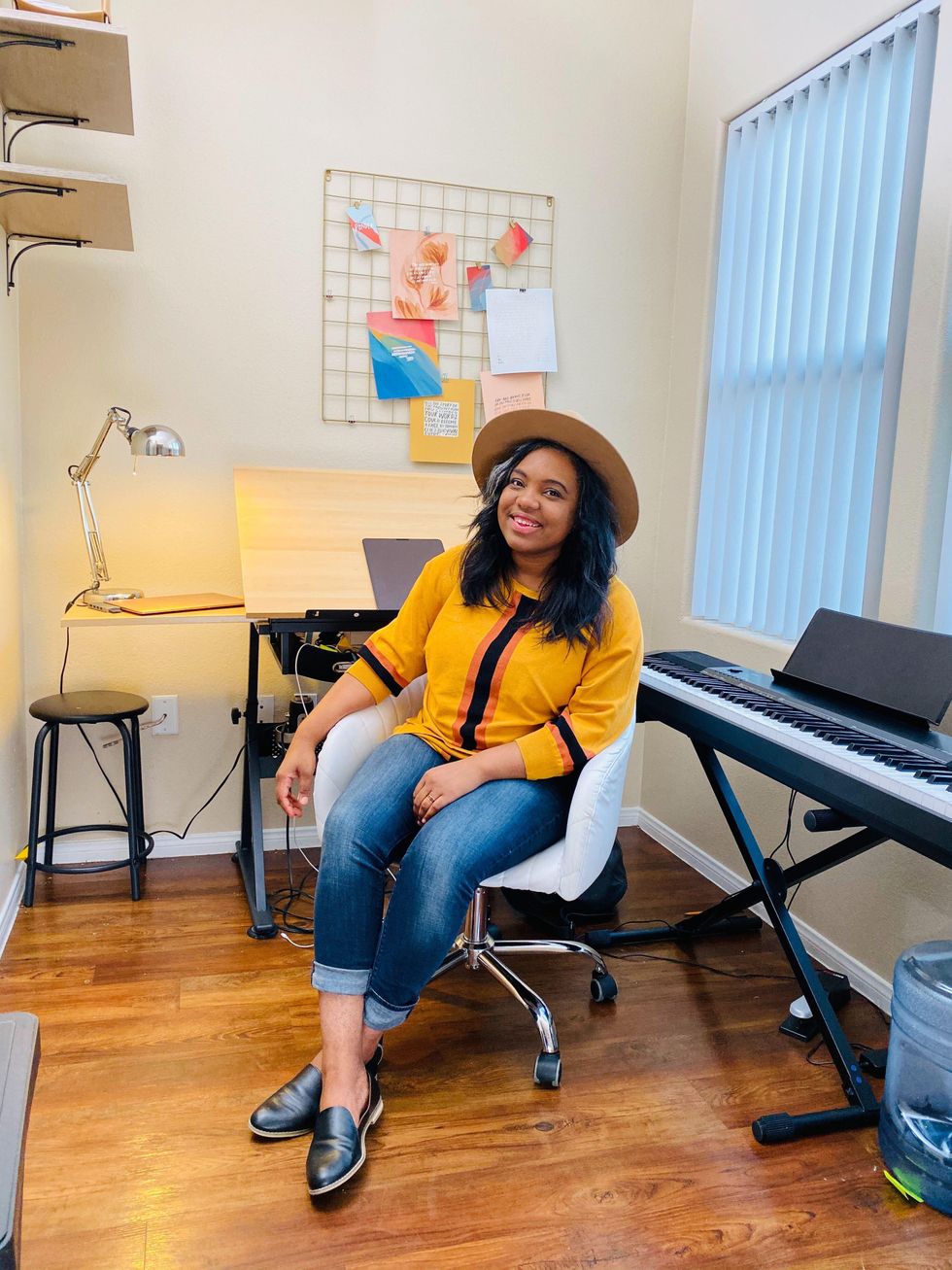
Courtesy of Morgan Harper Nichols
On what it was like telling those close to her about her autism:
"It was surprisingly a very loving and supportive experience and I consider that to be a huge privilege. I have a sister who was diagnosed with Tourette's Syndrome and ADHD as well. Because of that, my family at least had some kind of frame of mind on how to deal with these issues. You know, at least how to support each other through them. I only knew about autism because my mom was the one who thought something may be there but she had doctors tell her I was fine. My husband and friends were also very supportive.
"I was just surprised at how supportive people were. I think one thing that can hold people back (including myself) from wanting to share is that sometimes you may feel like you're putting a burden on other people. What I found is that people want to support you. Once you share, you're going to find that people really do care. I was even shocked at the amount of response that I got on social media. There's so much happening in the world and on social media, so I didn't know what to expect. I was just blown about by the support. If teenager-me could have seen this, she wouldn't have believed it. So grateful."
On what she would tell someone who might have a hard time advocating for themself:
"Honestly, the first thing that came to mind is something that I have honestly had to hold on to from the moment with that first doctor all the way to today and in different areas of my life, and that's that there are other people out there. And I say that for those moments where a person looks at you and says that there is nothing wrong with you, you need to stop asking about this, or you need to do this or you need to do that. Just take a deep breath and remind yourself that there are other people out there. Yes, there are people who will shut you down, but there are also other people out there who won't. It might take time to find those other people, but it is worth the pursuit."
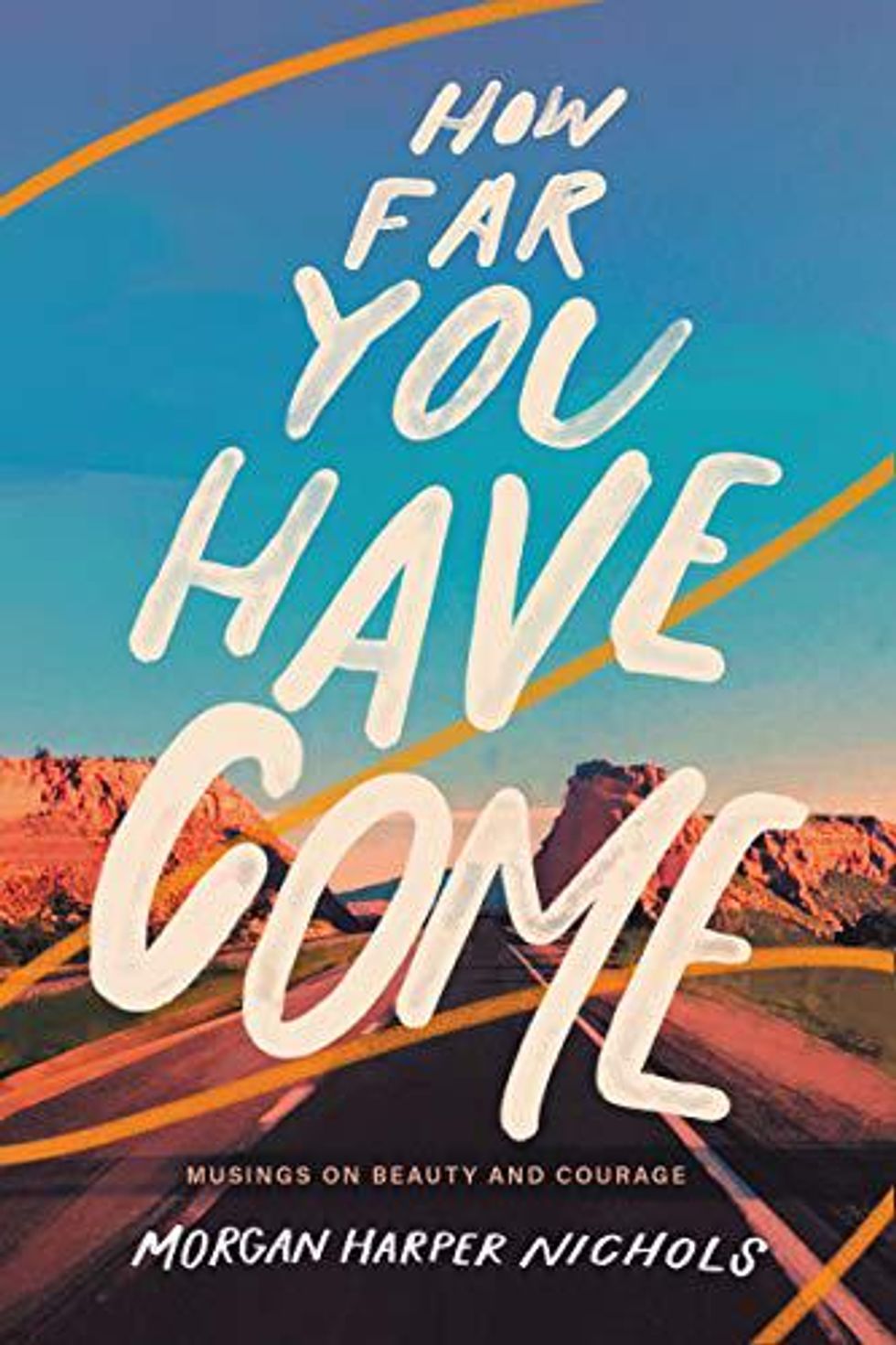
Courtesy of Morgan Harper Nichols
Morgan on 'How Far You've Come' and what she hopes readers will gain from her book:
"The book actually started by going through my phone and looking at photos. It was the beginning of the pandemic and I was just thinking about all of the places I've been and could not get to. I ended up on this photo that I took at sunrise in New Mexico years ago. I'm a visual artist and one thing I love to do is paint over photos. So, I took the photo and I put it on my iPad and I started painting over it. When I started painting over it, I started thinking about how much I loved the photo and how beautiful it was. And when I looked at the date of this photo, it was a really hard season and a really hard time in life.
"I just started thinking about how there's probably so many moments in my life where there's two things happening at once, that I managed to notice something beautiful amidst the chaos. So, I wrote the book literally by going through my camera roll and looking at my photos and at different places on the map and finding beautiful pictures and also finding where I was growing in courage or strength even when there was so much else going on."
"I hope the book encourages you to go through your camera roll and find those photographs that show you how far you have come. My hope is that readers are able to see that with everything going on, they are still capturing beauty and able to notice where light is pouring in. I think that those two things together can teach us a lot about our journeys and help us give ourselves some credit for how far we've come."
Morgan's newest book How Far You Have Come: Musings on Beauty and Courage will be released on April 27th and is currently available for pre-order.
Featured image courtesy of Morgan Harper Nichols



